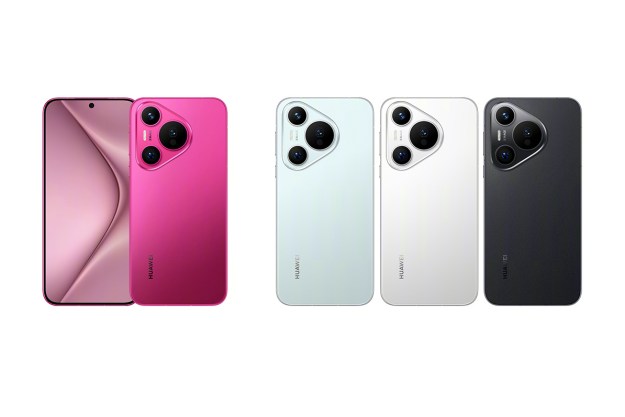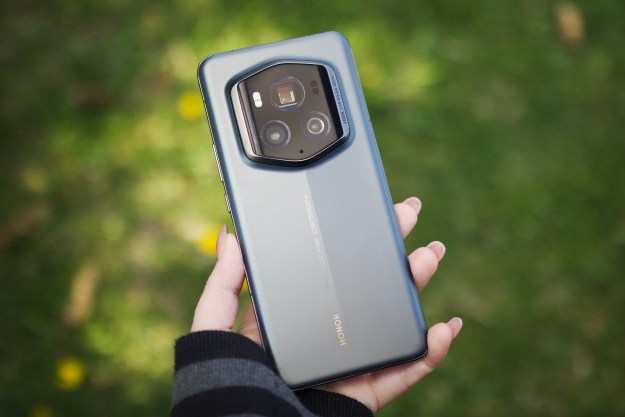
LinkNYC is a project backed by Mayor Bill de Blasio, and it’s primarily being funded and operated by a consortium of companies including Qualcomm, Intersection, and Civiq Smartscapes. The project involves converting phone booths into Wi-Fi hot spots that offer free 24/7 gigabit Wi-Fi with a 150-foot radius, free calls to anywhere in the U.S., a touchscreen tablet interface, a digital display that shows ads and announcements, as well as ports so you can charge your devices (cable not included).
“LinkNYC will eventually become a network of as many as 7,500 to 10,000 public kiosks offering fast and free Wi-Fi.”
The NYCLU says CityBridge, the company behind LinkNYC, “retains vast amount of information about users — often indefinitely — building a massive database that carries a risk of security breaches and unwarranted NYPD surveillance,” in a letter sent to the Mayor’s office.
“LinkNYC, which was publicly launched in January, will eventually become a network of as many as 7,500 to 10,000 public kiosks offering fast and free Wi-Fi throughout all five boroughs,” the NYCLU says in the letter. “The sheer volume of information gathered by this powerful network will create a massive database of information that will present attractive opportunities for hackers and for law enforcement surveillance, and will carry an undue risk of abuse, misuse and unauthorized access.”
CityBridge’s privacy policy for the Link hubs says that by accepting the terms connected to the use of its service, CityBridge will be permitted to monitor information about your visits to websites, information used to facilitate use of its services, and pages viewed or searched for, including page response times, download errors, length of visits to certain pages, and more.
But LinkNYC’s General Manager, Jen Hensley, told Digital Trends that “LinkNYC does not collect or store any data on users’ personal web browsing on their own devices.”
To use its services, you need to sign in with your email address, and after asking for consent, CityBridge will also permit “selected third parties to provide you with information about goods or services that may interest you.”
“Sometimes we supplement technical information we collect from you with information collected by third parties,” according to the privacy policy. “Third parties may include advertising partners or other providers that help us understand our users. We do not collect information about your precise location. However, we know where we provide WiFi services, so when you use the Services we can determine your general location.”
Mayor Bill de Blasio’s office responded to NYCLU’s allegations that CityBridge is retaining vast user data.
“New York City and CityBridge have created customer-first privacy protections to ensure our users’ personal information stays that way — personal,” Natalie Grybauskas, spokesperson for the Mayor, told Digital Trends. “We believe our privacy policy is the best way to protect New Yorkers and LinkNYC users while they safely and securely enjoy free superfast Wi-Fi across the five boroughs. We will continue to work to ensure legitimate concerns are addressed.”
“LinkNYC does not collect or store any data on users’ personal web browsing on their own devices.”
The NYCLU’s letter also raised the issue of whether the NYPD could be requesting access to user data via the LinkNYC hubs, and whether sensors and cameras on the hubs would feed into the NYPD’s systems and the Domain Awareness System. The DAS is a surveillance system designed by Microsoft that tracks targets and gets detailed information from them, and connects to 6,000 cameras in New York City.
But Grybauskas specifically mentioned that cameras and environmental sensors aren’t fed into the Domain Awareness System, and that the NYPD would have to secure a subpoena to acquire this information. The same goes for personal information, as it won’t be shared or sold for third-party use unless it’s ordered by a court or through a subpoena.
Hensley, echoed Grybauskas’ sentiments and said CityBridge would need a subpoena “or similar lawful request” before sharing any data with the NYPD or law enforcement, and once they have, they would “make every effort” to let users know about those requests.
Hensley also referred to the Domain Awareness System, and said that the cameras in the Link hub are “currently inactive and are not designed to feed into any NYPD systems.”
The NYCLU’s letter reminds us of the important point that there’s no such thing as a free lunch.
“New Yorkers’ private online activities shouldn’t be used to create a massive database that’s within the ready grasp of the NYPD,” Donna Lieberman, executive director of the NYCLU, said in the letter. “Free public Wi-Fi can be an invaluable resource for this city, but New Yorkers need to know there are too many strings attached.”
Editors' Recommendations
- Take a look inside Google’s first-ever retail store
- Apple AirPods falling onto subway tracks is a problem in New York City


